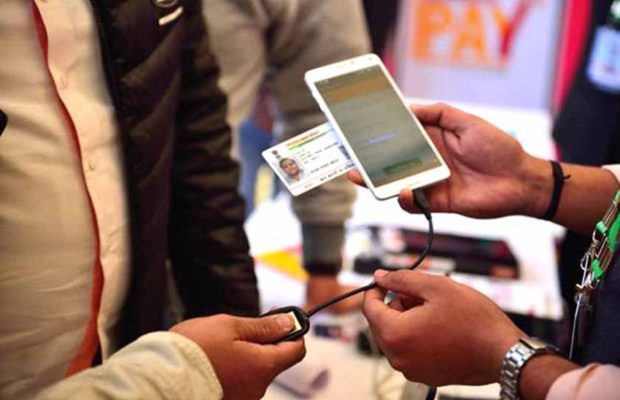By: Ranjit Devraj
Send to a friend
The details you provide on this page will not be used to send unsolicited email, and will not be sold to a 3rd party. See privacy policy.
[NEW DELHI] India’s ambitious plans to force its 1.3 billion citizens to use biometric identity cards to access government benefits have fallen foul of the country’s highest court which says the project could undermine rights to privacy.
After finding that the biometric ID, referred to as Aadhaar ID, infringes on the right to privacy, the Supreme Court decided that the issue was a constitutional matter and therefore should be resolved by a ‘constitution bench’. Benches have at least five judges interpreting substantial matters that impinge on India’s constitution. The court has appointed to hear this month petitions filed against the Aadhaar scheme by a number of individuals and groups. The bench’s decision will likely decide the future of what has evolved into the world’s largest biometric database.
Meanwhile, following the Court’s intervention, the government last week (December 8) issued orders extending a yearend deadline for citizens to link their biometric ID numbers to income tax returns, bank accounts and other services until March 31, 2018.
“What needs to be understood is that they are building databases by putting together your biometric Aadhaar card”
Usha Ramanathan
Launched in 2009, Aadhaar was originally voluntary and was designed to ensure that government benefits go to the intended beneficiaries rather than impersonators, middlemen and corrupt officials.
But in 2014 after the Congress party, which are the proponents of the scheme, lost power to the right-wing Bharatiya Janata Party (BJP), the new government began aggressively pushing Aadhaar cards on to every possible sphere of activity — from university admissions to getting a cooking gas cylinder.
Now Aadhaar identity cards are mandatory for opening a bank account, property purchases, filing income tax returns, getting a telephone connection and for the registration of deaths.
Several civil society groups, such as the Citizens Forum for Civil Liberties, voiced fears that the government has intentions of turning the country into an intrusive police state by cross-linking data gleaned from the different services that are linked to it. The benefits were originally meant for the poorer sections of population who had little to lose from close government scrutiny. But linking it to banking and many other financial transactions exposes everyone especially the middle and upper classes to possible unscrupulous use of databases.
Aadhaar’s chief executive officer, Ajay Bhushan Pandey, said this was not the case. Contacted by SciDev.Net, Pandey declined a formal interview and instead referred to his article that was published in several local dailies including the Times of India (11 November). In the article he said, biometrics used — photographs, fingerprints and iris image — are the “least intrusive”.
According to Pandey, Aadhaar has already “emerged as a powerful instrument which enables people to establish their identity, receive their entitlements and exercise their rights without fear of being excluded or having their rights taken away”.
BreachesHowever, aside from surveillance fears, critics also worry about the government’s ability to protect the confidentiality of the information and data collected — and with good reason as there already have been several breaches.
In March this year, the government was forced to admit that personal details such as telephone numbers, addresses and email identities of over 10 million Aadhaar cardholders had somehow been leaked. According to information provided by the Unique Identity Development Authority of India (UIDAI), entrusted with the biometrics of the Aadhaar cards, responsibility for the implementation of the Aadhaar card project was entrusted to 25 different private companies hired without open tender.
“That’s a lot of private companies and they all have access to sensitive data,” says Usha Ramanathan in an interview with SciDev.Net. Ramanathan is a well-known human rights lawyer in India but a litigant in Aadhaar cases before the Supreme Court.
“What needs to be understood is that they are building databases by putting together your biometric Aadhaar card, bank account number and mobile number on several of the services (banking, passports, income tax returns, university admissions, etc.) — remember that data is the new oil.” she says.
This piece was produced by SciDev.Net’s Asia & Pacific desk.














